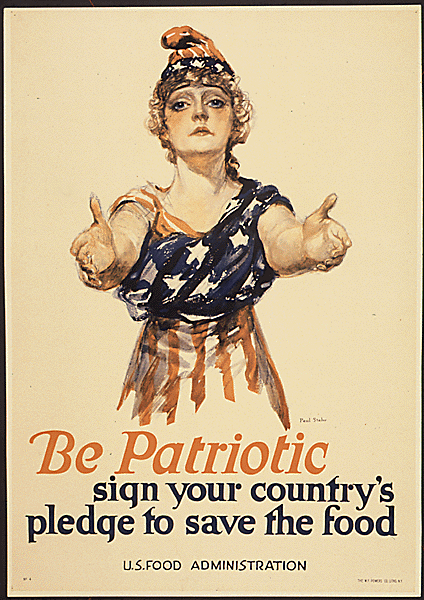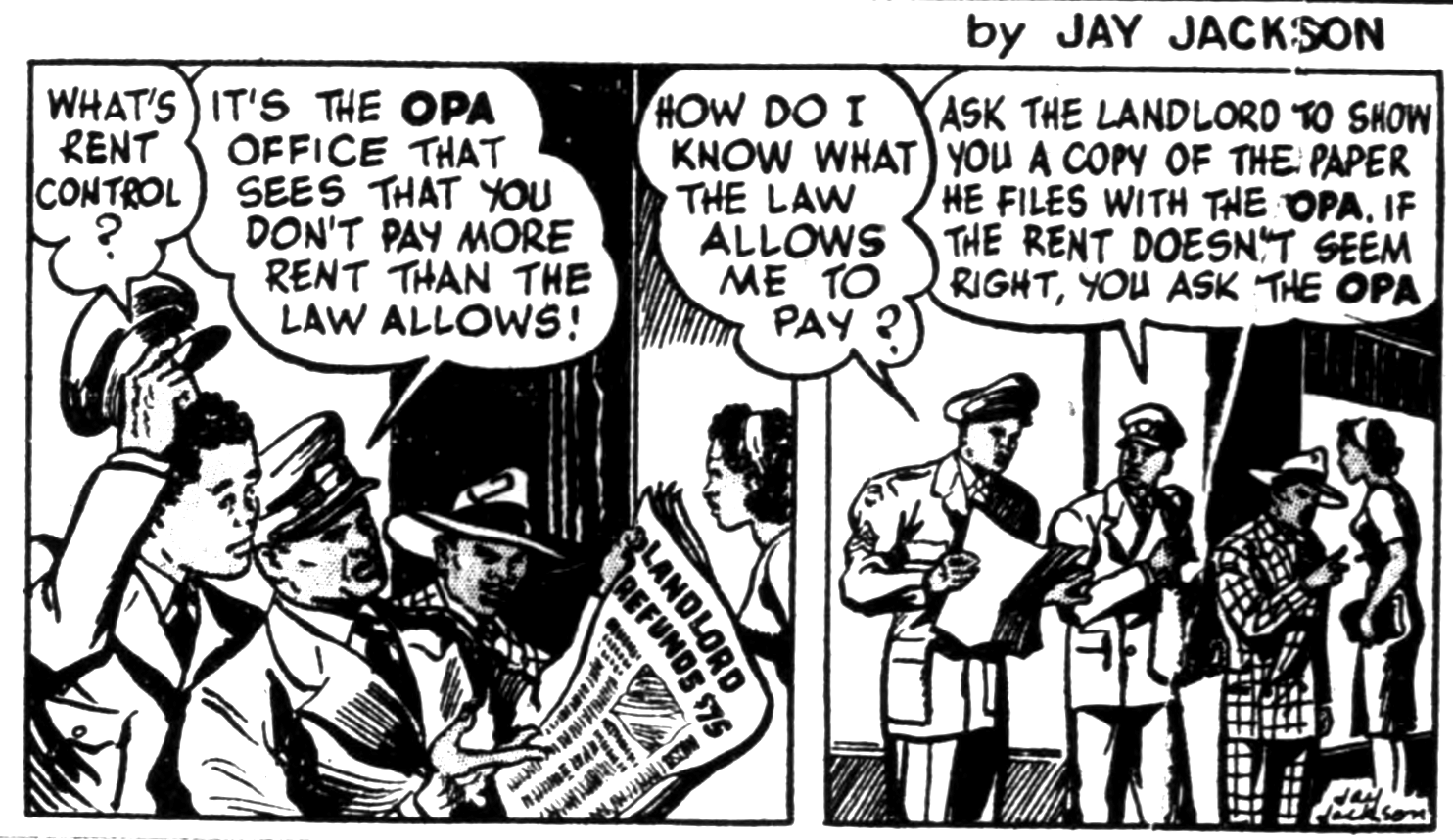|
Price Controls
Price controls are restrictions set in place and enforced by governments, on the prices that can be charged for goods and services in a market. The intent behind implementing such controls can stem from the desire to maintain affordability of goods even during shortages, and to slow inflation, or alternatively to ensure a minimum income for providers of certain goods or to try to achieve a living wage. There are two primary forms of price control: a price ceiling, the maximum price that can be charged; and a price floor, the minimum price that can be charged. A well-known example of a price ceiling is Rent regulation, rent control, which limits the increases that a landlord is permitted by government to charge for rent. A widely used price floor is minimum wage (wages are the price of labor). Historically, price controls have often been imposed as part of a larger incomes policy package also employing wage controls and other regulatory elements. Although price controls are routin ... [...More Info...] [...Related Items...] OR: [Wikipedia] [Google] [Baidu] |
Incomes Policy
Incomes policies in economics are economy-wide wage and price controls, most commonly instituted as a response to inflation, and usually seeking to establish wages and prices below free-market level. Incomes policies have often been resorted to during wartime. During the French Revolution, " The Law of the Maximum" imposed price controls (by penalty of death) in an unsuccessful attempt to curb inflation, and such measures were also attempted after World War II. Peacetime income policies were resorted to in the U.S. in August 1971 as a response to inflation. The wage and price controls were effective initially but were made less restrictive in January 1973, and later removed when they seemed to be having no effect on curbing inflation. Incomes policies were successful in the United Kingdom during World War II but less successful in the post-war era. Theory Incomes policies vary from voluntary wage and price guidelines to mandatory controls like price/wage freezes. One var ... [...More Info...] [...Related Items...] OR: [Wikipedia] [Google] [Baidu] |
Market Reforms Of Alauddin Khalji
In the early 14th century, the Delhi Sultanate ruler Alauddin Khalji (reigned 1296–1316) instituted price controls and related reforms in his empire. He fixed the prices for a wide range of goods, including grains, cloth, slaves and animals. He banned hoarding and regrating, appointed supervisors and spies to ensure compliance with the regulations, and severely punished the violators. The reforms were implemented in the capital Delhi, and possibly, other areas of the Sultanate. Alauddin's courtier Amir Khusrau states that Alauddin's objective was the welfare of the general public. However, Ziauddin Barani (c. 1357), the main source of information about the reforms, states that the Sultan's objective was to subjugate the Hindus and to maintain an unprecedentedly large army (the low prices would make low salaries acceptable for the soldiers). The reforms were revoked shortly after Alauddin's death, by his son Qutbuddin Mubarak Shah. Background The main source of information ... [...More Info...] [...Related Items...] OR: [Wikipedia] [Google] [Baidu] |
United States Food Administration
The United States Food Administration (1917–1920) was an independent federal agency that controlled the production, distribution, and conservation of food in the U.S. during the nation's participation in World War I. It was established to prevent monopolies and hoarding, and to maintain government control of foods through voluntary agreements and licensing. The agency was established by of August 10, 1917, pursuant to the Food and Fuel Control Act, and was abolished by on August 21, 1920. Herbert Hoover was appointed to serve as Food Administrator. One of the agency's important tasks was the stabilization of the price of wheat on the U.S. market. Concepts such as "meatless Mondays" and "wheatless Wednesdays" were also implemented to help ration food, so that the government could prioritize the war effort. Branches of the United States Food Administration were set up in all states as well as Alaska, Hawaii, Puerto Rico and Washington, D.C. The agency had broad powers but few ... [...More Info...] [...Related Items...] OR: [Wikipedia] [Google] [Baidu] |
World War I
World War I or the First World War (28 July 1914 – 11 November 1918), also known as the Great War, was a World war, global conflict between two coalitions: the Allies of World War I, Allies (or Entente) and the Central Powers. Fighting took place mainly in European theatre of World War I, Europe and the Middle Eastern theatre of World War I, Middle East, as well as in parts of African theatre of World War I, Africa and the Asian and Pacific theatre of World War I, Asia-Pacific, and in Europe was characterised by trench warfare; the widespread use of Artillery of World War I, artillery, machine guns, and Chemical weapons in World War I, chemical weapons (gas); and the introductions of Tanks in World War I, tanks and Aviation in World War I, aircraft. World War I was one of the List of wars by death toll, deadliest conflicts in history, resulting in an estimated World War I casualties, 10 million military dead and more than 20 million wounded, plus some 10 million civilian de ... [...More Info...] [...Related Items...] OR: [Wikipedia] [Google] [Baidu] |
Library Of Economics And Liberty
Liberty Fund, Inc. is an American nonprofit foundation headquartered in Carmel, Indiana, that promotes the libertarian views of its founder, Pierre F. Goodrich, through publishing, conferences, and educational resources. The operating mandate of the Liberty Fund was set forth in an unpublished memo written by Goodrich "to encourage the study of the ideal of a society of free and responsible individuals".Robert T. Grimm (ed.), ''Notable American Philanthropists: Biographies of Giving and Volunteering'', Greenwood Publishing Group, 2002, pp. 125–128 History Liberty Fund was founded by entrepreneur Pierre F. Goodrich in 1960. Goodrich, "one of the richest men in Indiana", was involved with coal mines, corn production, telecommunications, and securities. Goodrich was a member of the neoliberal or classically liberal Mont Pelerin Society, an international organization of academics, intellectuals, and business leaders who advocated free market economic policies. Goodrich was al ... [...More Info...] [...Related Items...] OR: [Wikipedia] [Google] [Baidu] |
The Concise Encyclopedia Of Economics
Liberty Fund, Inc. is an American nonprofit foundation headquartered in Carmel, Indiana, that promotes the libertarian views of its founder, Pierre F. Goodrich, through publishing, conferences, and educational resources. The operating mandate of the Liberty Fund was set forth in an unpublished memo written by Goodrich "to encourage the study of the ideal of a society of free and responsible individuals".Robert T. Grimm (ed.), ''Notable American Philanthropists: Biographies of Giving and Volunteering'', Greenwood Publishing Group, 2002, pp. 125–128 History Liberty Fund was founded by entrepreneur Pierre F. Goodrich in 1960. Goodrich, "one of the richest men in Indiana", was involved with coal mines, corn production, telecommunications, and securities. Goodrich was a member of the neoliberal or classically liberal Mont Pelerin Society, an international organization of academics, intellectuals, and business leaders who advocated free market economic policies. Goodrich was als ... [...More Info...] [...Related Items...] OR: [Wikipedia] [Google] [Baidu] |
Rent Control
Rent regulation is a system of laws for the rental market of dwellings, with controversial effects on affordability of housing and tenancies. Generally, a system of rent regulation involves: *Price controls, limits on the rent that a landlord may charge, typically called rent control or rent stabilization *Eviction controls: codified standards by which a landlord may terminate a tenancy *Obligations on the landlord or tenant regarding adequate maintenance of the property *A system of oversight and enforcement by an independent regulator and ombudsman The loose term "rent control" covers a spectrum of regulation which can vary from setting the absolute amount of rent that can be charged, with no allowed increases, to placing different limits on the amount that rent can increase; these restrictions may continue between tenancies, or may be applied only within the duration of a tenancy. As of 2016, at least 14 of the 36 OECD countries have some form of rent control in effect, i ... [...More Info...] [...Related Items...] OR: [Wikipedia] [Google] [Baidu] |
Mixed Economies
A mixed economy is an economic system that includes both elements associated with capitalism, such as private businesses, and with socialism, such as nationalized government services. More specifically, a mixed economy may be variously defined as an economic system blending elements of a market economy with elements of a planned economy, markets with state interventionism, or private enterprise with public enterprise. Common to all mixed economies is a combination of free-market principles and principles of socialism. While there is no single definition of a mixed economy, one definition is about a mixture of markets with state interventionism, referring specifically to a capitalist market economy with strong regulatory oversight and extensive interventions into markets. Another is that of active collaboration of capitalist and socialist visions. Yet another definition is apolitical in nature, strictly referring to an economy containing a mixture of private enterpri ... [...More Info...] [...Related Items...] OR: [Wikipedia] [Google] [Baidu] |
Planned Economies
A planned economy is a type of economic system where investment, production and the allocation of capital goods takes place according to economy-wide economic plans and production plans. A planned economy may use centralized, decentralized, participatory or Soviet-type forms of economic planning. The level of centralization or decentralization in decision-making and participation depends on the specific type of planning mechanism employed. Socialist states based on the Soviet model have used central planning, although a minority such as the former Socialist Federal Republic of Yugoslavia have adopted some degree of market socialism. Market abolitionist socialism replaces factor markets with direct calculation as the means to coordinate the activities of the various socially owned economic enterprises that make up the economy. More recent approaches to socialist planning and allocation have come from some economists and computer scientists proposing planning mechanisms b ... [...More Info...] [...Related Items...] OR: [Wikipedia] [Google] [Baidu] |



